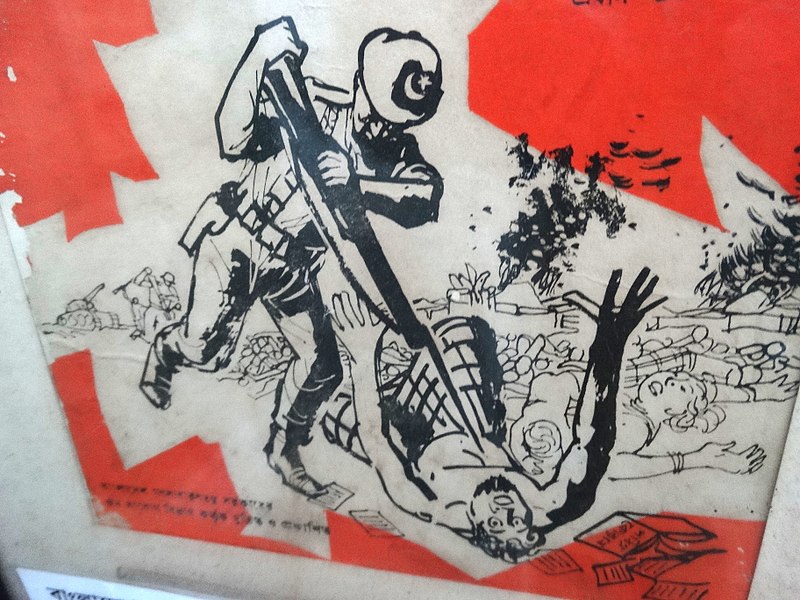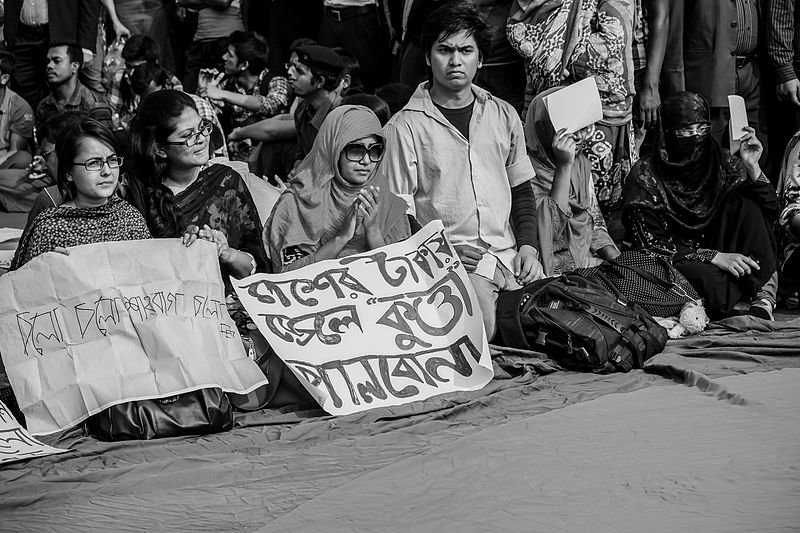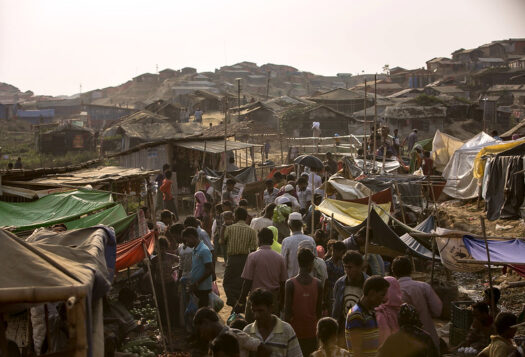
On September 2, 2023, The New York Times reported that Bangladesh’s democracy is silently deteriorating. With a crucial general election in 2024, many opposition leaders are ensnared in numerous legal disputes, potentially incapacitating their parties and affecting democratic institutions in Bangladesh.
The erosion of democracy in Bangladesh is intricately linked to the rise of a radical form of nationalism, which takes the form of ‘political nationalism.’ Political nationalism emphasizes exclusion based on political identity rather than cultural, ethnic, or racial factors. This piece develops the concept of political nationalism to elucidate the current situation in Bangladesh. This piece argues that the Awami League (AL) has positioned itself as the sole custodian of the liberation spirit by diminishing the opposition’s contributions to the Liberation War, thus attempting to delegitimize them in the context of Bangladesh electoral politics.
Theories of Nationalism
Nationalism can take different forms and can be inclusive or exclusive, the latter leading to the identification of “non-nationals” or external threats, creating an “us versus them” distinction. The primary ideological divisions within this form of radical or illiberal nationalism are delineated based on factors such as race, language, religion, shared history, ethnicity, and culture.
Radical nationalism can also take the form of ‘political nationalism,’ which emphasizes exclusion based on political identity. This type of radical nationalism is more inclined to accept religious diversity, cultural differences, and racial diversity within a state, but cannot accept political differences in ideology or party support. The case of Bangladesh suggests the emergence of this distinct form of ‘political nationalism,’ driven by the Awami League’s self-proclaimed interpretation of the 1971 Liberation War, resulting in an illiberal political and social landscape that marginalizes the opposition.
The Liberation War’s Rhetorical Role in Political Nationalism
The Bangladesh Awami League (AL) played a crucial role in the 1971 Liberation War, led by Sheikh Mujibur Rahman, resulting in Bangladesh’s independence and his becoming Prime Minister. However, he was assassinated in 1975, leading to a turbulent political landscape. The transition from civil-militarism (1975-1990) to illiberal democracy (1991-2006) saw power shifts between AL and the Bangladesh Nationalist Party (BNP), marred by violence, corruption, and political strife. After a brief civil-military government (2007-2008), AL gained a strong parliamentary majority in 2009, ushering in authoritarianism marked by election manipulation and the suppression of the opposition.
The case of Bangladesh suggests the emergence of this distinct form of ‘political nationalism,’ driven by the Awami League’s self-proclaimed interpretation of the 1971 Liberation War.
The AL government pursued war crimes trials, aiming to bring the nation’s attention to the events during the 1971 Liberation War. Dr MA Hasan, convener of the War Crimes Facts Finding Committee, commented that “The trial is never a question of vengeance but of restoring the dignity of a nation.”
The AL has elevated the Liberation War to a sacred status, as evidenced by declaring war-time slogan “Joy Bangla” (Victory to Bangladesh) as the national slogan in 2022. The sacredness of the Liberation War was further ensured when the AL government enacted a controversial Digital Security Act in 2018 that imposes severe penalties for spreading online propaganda against the War of Liberation and Sheikh Mujibur Rahman. These acts carry the possibility of maximum life imprisonment. Some academics have faced job loss for publishing views deemed contrary to the Liberation War’s spirit. Even a ruling party AL leader and former Mayor of Gazipur City Corporation, Jahangir Alam, was ousted for questioning the martyr count and Sheikh Mujibur Rahman’s role in the war.
Designating an ‘Out Group’: The Awami League Recasts the Liberation War
In essence, the AL has created the notion of the Liberation War as sacred, and further defined the spirit of liberation as one of economic development over democracy. The next step has been to position itself as the sole custodian of the liberation spirit by downplaying the opposition’s contributions to the Liberation War. Statements made by AL Minister Mosharraf Hossain, denying the status of founder of the BNP, former President and freedom fighter Gen (retd) Ziaur Rahman, reflect this perspective. “Zia was in the country but…always stayed away from the battlefield,” he said, despite Zia’s role as a sector commander during the 1971 Liberation War.

The AL attempts to delegitimize the BNP’s political standing by disassociating the BNP from the war, questioning its commitment to Bangladesh’s founding ideals, and portraying the BNP as a political party that undermines the Liberation War spirit. According to AL Information Minister Dr. Hasan Mahmud, the spirit of the Liberation War was disregarded during the rule of the BNP. He referred to the BNP as “evil forces” that opposed Bangladesh’s independence and claimed that they are currently engaged in anti-state conspiracies domestically and internationally. AL claims that defeating these “evil forces” will allow them to achieve the dream of a sonar Bangla (Golden Bengal) envisioned by Sheikh Mujibur Rahman. Members of AL have even suggested that BNP is a ‘dalal (broker) party of Pakistan’ which is why it should be resisted.
That said, the AL has linked the Liberation War spirit to its rhetoric of establishing a sonar (golden) Bangladesh. In a 2019 speech, Prime Minister Sheikh Hasina said, “the Awami League has a glorious role in every major achievement of the nation… In the future, Awami League, along with the people, will build a poverty and hunger-free, happy, prosperous and developed sonar Bangladesh as envisioned by the Father of the Nation.” In her speech, the term “sonar Bangladesh” was used to convey the vision of a poverty-free and developed Bangladesh, without explicitly mentioning the country’s democratic ambitions. This is why AL has made the slogan, ‘More Development Less Democracy’ very popular.
The self-proclaimed interpretation of the spirit of liberation by the Bangladeshi government under the Awami League has led to the rise of a radical form of nationalism termed ‘political nationalism.’ This form of nationalism divides the country into an ‘us’ and ‘them’ mentality, with the AL positioning itself as the righteous and patriotic force – heirs to the liberation spirit – while labelling the opposition, including the BNP-Jamaat alliance, as the ‘other.’ By portraying themselves as the sole custodians of the liberation spirit and questioning the patriotism of the opposition, the AL government seeks to turn patriotic voters against the opposition and consolidate its power by suppressing dissenting voices.
In Bangladesh, the spirit of liberation is closely linked to the preservation of democratic rights, given the Pakistani junta’s refusal to transfer power to Sheikh Mujibur Rahman after the 1970 election.
The division created by the radical political nationalism of the AL government has resulted in the infringement of the opposition’s rights. Extrajudicial killings, enforced disappearances, deaths in custody, and the shutting down of BNP’s newspaper have regrettably become prevalent issues, raising serious concerns about human rights violations. This approach undermines the fundamental principles of democracy, which include recognizing the rights and participation of all citizens, regardless of their political affiliations.
Another Way Forward?
It is essential to recognize that the prevailing interpretation propounded by AL of the spirit of the Liberation War is erroneous. In Bangladesh, the spirit of liberation is closely linked to the preservation of democratic rights, given the Pakistani junta’s refusal to transfer power to Sheikh Mujibur Rahman after the 1970 election. This divisive (political) nationalism raises concerns about the erosion of democratic principles in the country. AL appears to be deviating from the path of conducting free and fair elections in January 2024, as seen in the elections of 2014 and 2018. Their development-driven political nationalism is expected to serve as a strategic tool once more in the 2024 election despite enormous pressure from the democratic world. It is essential for Bangladesh to have an inclusive nationalism that embraces diversity, respects democratic processes, and encourages the participation of all citizens, regardless of their political affiliations.
Also Read: Bangladesh’s Elections Show Limitations for India-U.S. Cooperation in South Asia
***
Image 1: Nationalist Poster Depicting Pakistani Army Atrocities in 1971 via Wikimedia Commons
Image 2: Shahbag Projonmo Square Uprising Demanding Death Penalty of the War Criminals of 1971 via Wikimedia Commons


